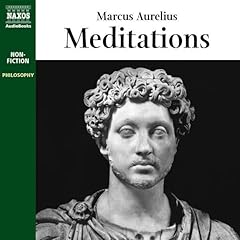
Beyond Good and Evil
Failed to add items
Add to Cart failed.
Add to Wish List failed.
Remove from wishlist failed.
Adding to library failed
Follow podcast failed
Unfollow podcast failed
Get 3 months for $0.99/mo
 Prime members: New to Audible? Get 2 free audiobooks during trial.
Prime members: New to Audible? Get 2 free audiobooks during trial.
Buy for $18.18
-
Narrated by:
-
Steven Crossley
Friedrich Nietzsche's Beyond Good and Evil, first published in 1886, presents a scathing critique of traditional morality and attacks previous philosophers for their blind acceptance of Christian ideals of virtue. As an alternative to what he viewed as the illogical and irrelevant philosophy of the nineteenth century, Nietzsche argues for the importance of imagination, self-assertion, danger, and originality for genuine philosophy. He furthermore denies the existence of a universal system of morality and instead offers a framework in which social roles and power dynamics dictate what is appropriate. A culmination of Nietzsche's mature philosophy, Beyond Good and Evil is a classic of moral thought and one of the foundations of existentialism. This edition is the translation by Helen Zimmern.
Public Domain (P)2011 TantorListeners also enjoyed...




















People who viewed this also viewed...









Difficult to understand
Something went wrong. Please try again in a few minutes.
Nietzsche really is as bad as they say.
Something went wrong. Please try again in a few minutes.
I've read this book before.
Something went wrong. Please try again in a few minutes.
Great for cleaning
Something went wrong. Please try again in a few minutes.
Translation
Something went wrong. Please try again in a few minutes.


